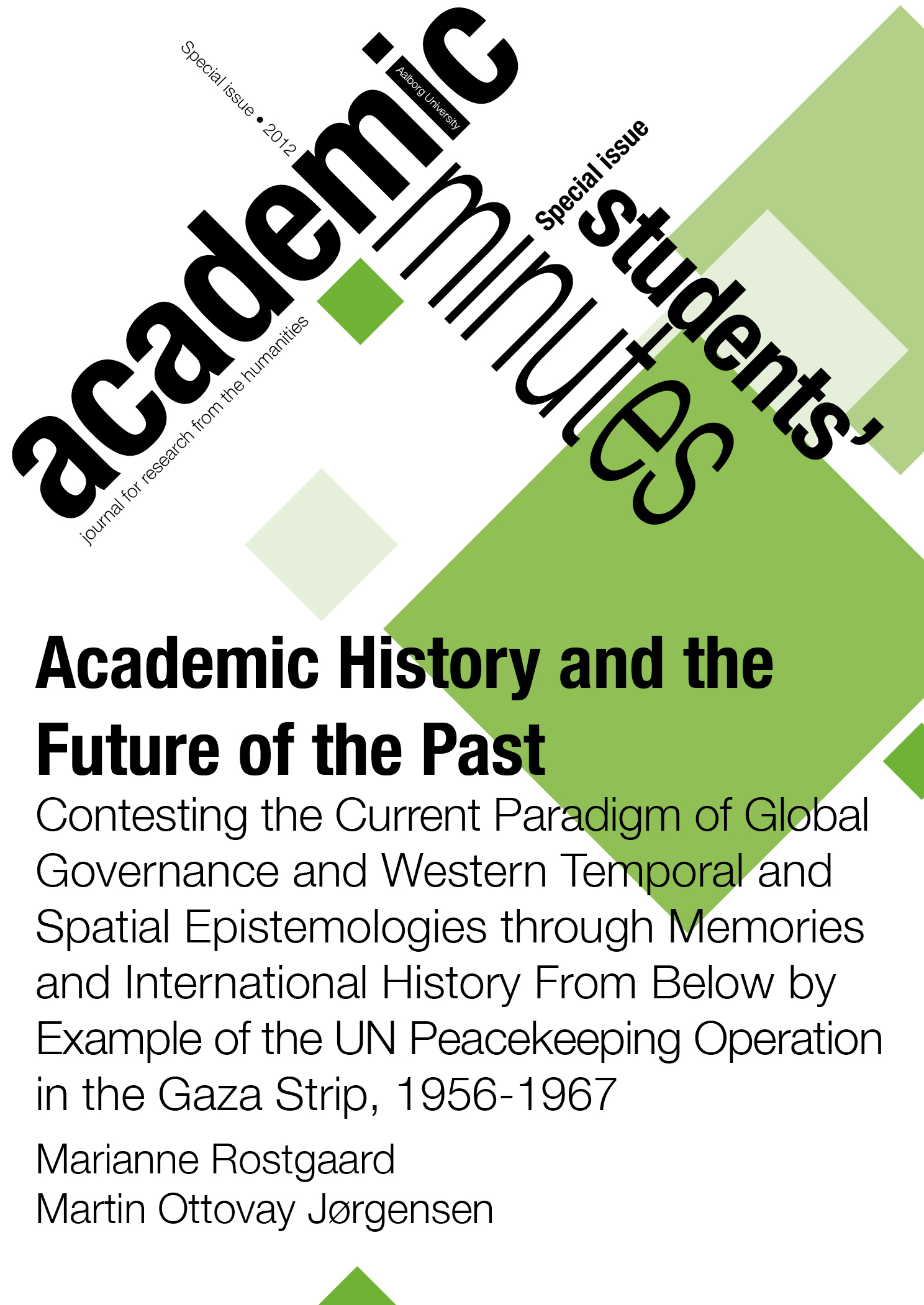Abstract | Abstract
Marianne Rostgaard and Martin Ottovay Jørgensen Academic History and the Future of the Past Contesting the Current Paradigm of Global Governance and Western Temporal and Spatial Epistemologies through Memories and International History From Below by Example of the UN Peacekeeping Operation in the Gaza Strip, 1956-1967. An outline of a new way of writing International History is presented in the article in form of a post-colonial reading of the Cold War United Nations peacekeeping operation in the Gaza Strip from 1956 to 1967. Asking questions that challenge the established narrative, of who has the right to speak and with what authority, the primary aim of this article is to move towards an alternative understanding of the peacekeeping paradigm of the United Nations as a performative dimension of the current paradigm of global governance from the ground up. It will be done, as suggested by the two global historians Michael Geyer and Charles Bright, in a way intended to “shatter the silences surrounding global practices, by tracking them, describing them, and presenting them historically and (…) to facilitate public cultures as free and equal marketplace of communication among the many voices of different histories and memories” (Geyer and Bright, 1995, pp. 1058-1059). This will allow us to begin not only to privilege other ways of relating to time, space and history, but also as called for by the literary postcolonial Madina Tlostanova and the semiotician Walter Mignolo in “Global coloniality and the decolonial option” allow us to shift from postcolonial to decolonial.
